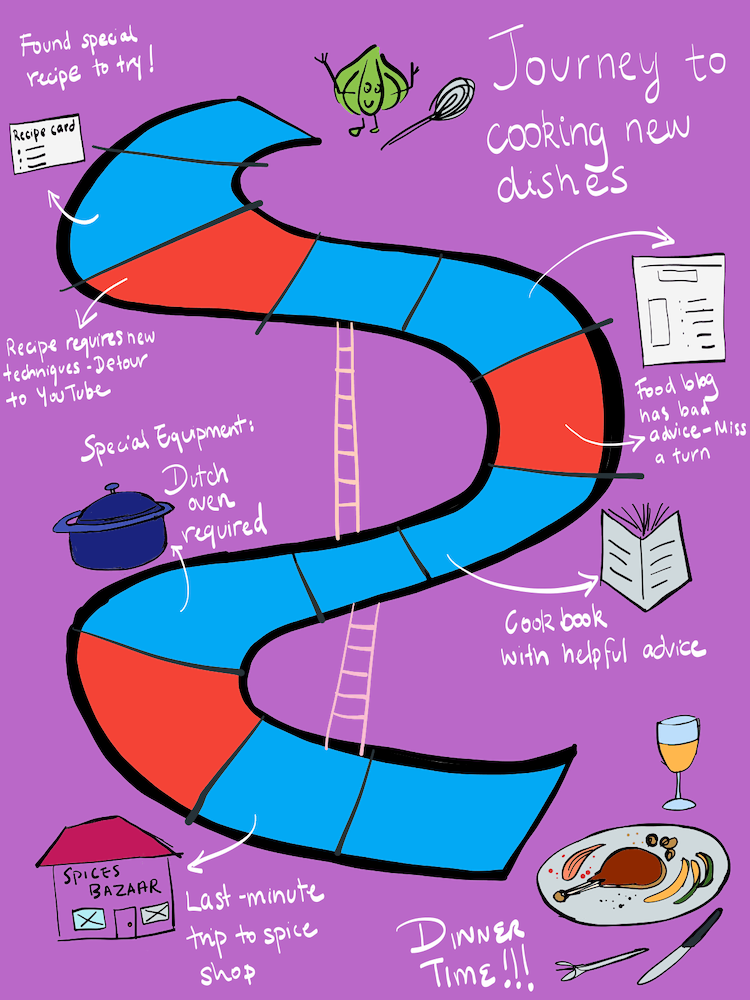How To Find Great Recipes To Avoid Cooking Failure
The red flags should have gone up when I saw the polarized reviews. When I researched French chocolate cake recipes, I landed on Marmiton, a crowd-sourced recipe website, similar to the notorious Allrecipes.com. A lot of the reviews applauded how easy the recipe was to make and how delicious the cake turned out to be. Good signs so far.
However, one in five reviews complained that the cake collapsed. Or that the cake was dry.
While these negative reviews should have set off alarm bells, it only took me 7 failed chocolate cakes until I wised up and began to suspect that the recipe may not be bulletproof, especially for baking at high-altitude.
But could 1095 comments, 64,000 favorites, and 5,664 shares be wrong?

This post is designed to help you avoid such heartache. Let’s tackle the issue of finding great recipes in 2 parts:
– Part 1: How to recognize a great recipe (this post). You’ll discover what clues to look for that indicate whether the author tested the recipe. – Part 2: Where to find cooking inspiration. While this is subjective, I’ll share my favorite sources to give you a jump start.How to recognize great recipes
While there are gems in crowd-sourced recipes and boutique food blogs, there is a myriad of untested recipes paving the road to failure.
To avoid this debacle, arm yourself with solid recipes that you are confident will work.
The most important step for success is to read the recipe from start to finish at least once before you make it.
Why?
It’s most important to check that you have the ingredients, equipment, and time required to complete the recipe. Does the recipe recommend 8 hours of incubation like this crème fraîche recipe? Do you need to track down Sichuan peppercorns? You’ll want to know this information before you commit to the recipe. Or else you’re inviting failure.
Here are the clues you can use to sniff out well-tested and trustworthy recipes on the Web and in cookbooks to ensure your cooking success.
Tips for substitution
Does the recipe offer substitutions for ingredients? Does it explain how to adjust the baking time depending on the size of the cake pan you’re using? What about recommendations for tripling the recipe if it claims to be a dish you can batch cook?
Recipe writers should show that they considered how your kitchen might differ. While it’s impossible to cover every scenario, an attempt to guide on adjusting for your stove or oven (regular vs. convention oven) and pantry ingredients on hand increases the likelihood that you will succeed with their recipe.
Check the reviews
There are often extra tips in the comments sections that benefit you. Skim past the vapid “Yay, I made this and I liked it,” comments. Look for modification suggestions or constructive criticism to understand whether the recipe has major flaws. If it’s a crummy recipe, you can see it in the recipe reviews (1-star ratings?).
💡TIP: If the recipe comments seem weirdly negative in a trolling way, make sure they’re not a bunch of bullies targeting the recipe writer before you assume the negative reviews are due to a badly written recipe.
Missing ingredients or steps
Do the instructions mention an ingredient that’s missing from the ingredient list (except for water)? Do the instructions miss an obvious step? If so, this incomplete recipe is destined to fail unless you have enough cooking knowledge to patch the gaps. Move on and find another recipe. After all, there are thousands of recipes to choose from...